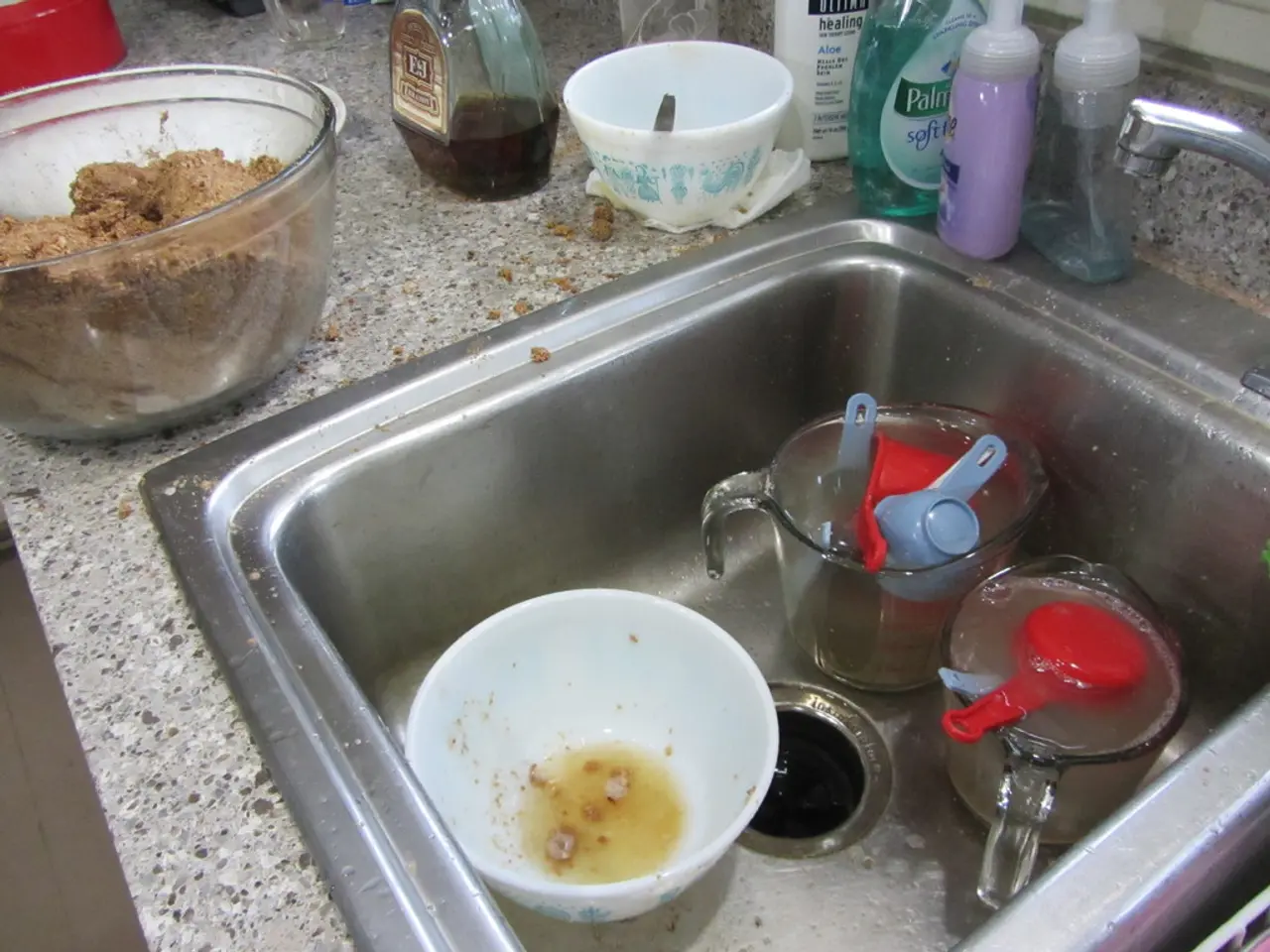Examining top-notch, safe kitchen appliances and identifying their alternatives for a more health-conscious kitchen setup
In the modern kitchen, safety and health concerns have become paramount when choosing appliances. A growing body of research indicates that certain materials used in kitchenware can pose potential health risks, particularly when heated or subjected to acidic or salty dishes. To help navigate this complex issue, we've compiled a list of the best non-toxic materials for kitchen appliances.
## Best Non-Toxic Materials for Kitchen Appliances
1. **Stainless Steel** - Stainless steel is a popular and safe choice for kitchen appliances, owing to its chemical inertness. Opt for 18/10 stainless steel to ensure minimal leaching of metals like nickel or chromium. Highly durable and resistant to corrosion, stainless steel is a reliable choice for long-term use.
2. **Borosilicate Glass** - Borosilicate glass is another safe and reliable option for food contact. It is non-reactive and inert, resistant to thermal shock, and chemically durable. Additionally, it is non-porous, reducing bacterial absorption and odors.
3. **Titanium** - Titanium is a highly non-reactive and biocompatible material, commonly used in medical implants. It is long-lasting, requires little maintenance, and is expensive but durable over decades.
4. **Ceramic** - Look for 100% ceramic or pure ceramic options to avoid heavy metals. Ceramic offers excellent non-stick properties without harmful chemicals and is safer than traditional Teflon. Ensure certifications like Prop 65 compliance and lead-free for added safety.
5. **Cast Iron** - Cast iron is naturally non-toxic when seasoned properly. It adds iron to food and is long-lasting with proper care.
## Additional Considerations
- Avoid materials like plastic and non-stick Teflon, as they can leach harmful chemicals. - Look for certifications like FDA approval and third-party lab testing to ensure safety. - It is recommended to select appliances marketed as PFAS-free. - GreenPan's ceramic-based coating is used in the best non-toxic slow cooker, free from PFAS, PFOA, lead, and cadmium that could corrupt cooking. - PFAS are man-made substances used in cookware that resist oil and water, and can last for centuries without biodegrading. - Vitamix now offers a stainless steel container for their blenders, ideal for blending hot soups or healthy smoothies and storing them safely in the refrigerator. - A spacious air fryer / oven can bake, roast, reheat, or air fry enough for the whole family, with an accessible French door design, stainless steel racks, and a reasonable price. - A sleek drip coffee maker with a 10-cup capacity is made of stainless steel and glass, ideal for serving quality drip coffee for the whole family or guests.
For those seeking non-toxic kitchen appliances, trusted brands like Aarke, Caraway, Le Creuset, GreenPan, KitchenAid, Made In, Our Place, Staub, and Vitamix offer reliable and safe options. Dr. Ryan Marino, a medical toxicologist, emergency physician, and addiction medicine specialist, as well as Dr. Jarnot and Dr. Johnson-Arbor, toxicologists who provide insights for selecting reliable non-toxic kitchen appliances, have been instrumental in research, testing, and reviews on non-toxic kitchen appliances. Chiana, the 'queen' of non-toxic living at Homes & Gardens, tests and reviews products for the Solved section of the website.
By making informed choices about the materials in our kitchen appliances, we can help ensure a healthier and safer environment for ourselves and our families.
Science has revealed that certain materials in kitchenware can potentially harm our health, particularly when heated or used with acidic or salty dishes. To promote health and wellness, fitness, and a healthy diet, it's essential to choose appliances made from non-toxic materials such as stainless steel, borosilicate glass, titanium, ceramic, and cast iron for the kitchen. Additionally, consider avoiding materials like plastic and non-stick Teflon, and opt for certifications like FDA approval and third-party lab testing to ensure safety.




